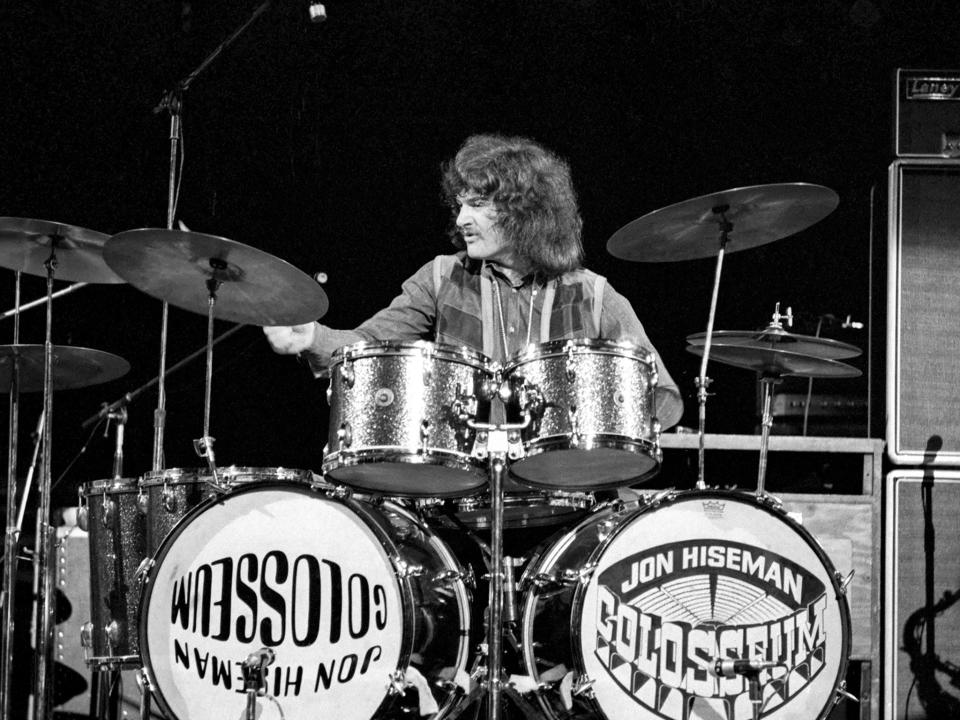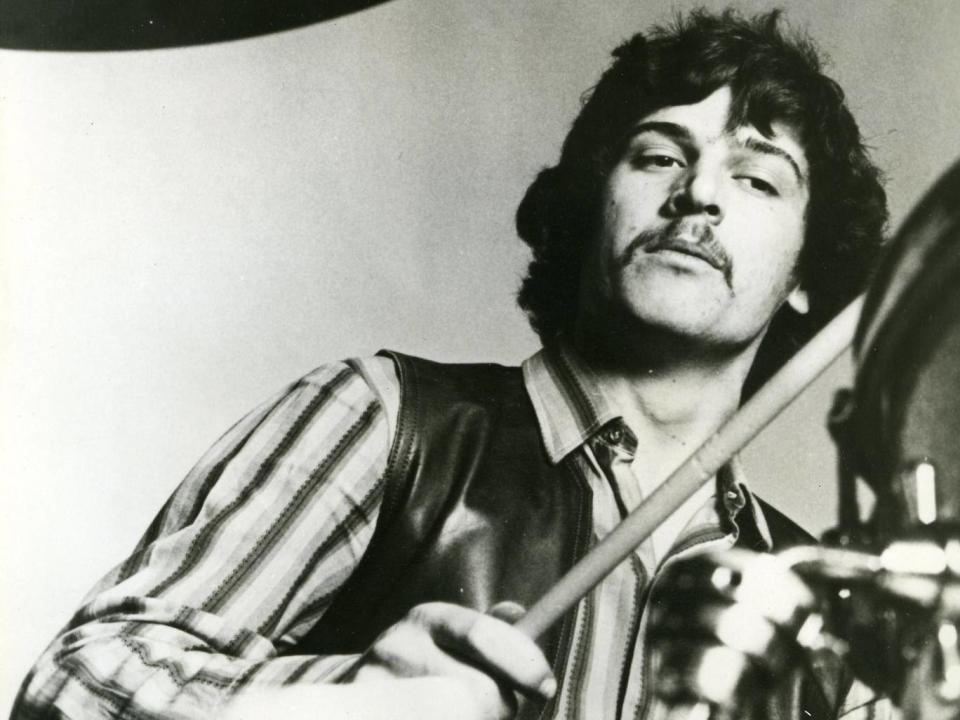Jon Hiseman: Master drummer and Colosseum founder who pioneered progressive rock

The drum solo, a staple of live shows for rock bands down the decades, often provides an opportunity for members of the audience to slip out to the bar or loo. Not when Jon Hiseman was on the sticks.
Hiseman, who has died aged 73 after suffering from brain cancer, was the drummer’s drummer. His solos with the jazz-rock band he founded and led, Colosseum, brimmed with invention and virtuosity, alternating between breakneck tempo and extraordinary deftness over the full kit.
He even recorded an album of solos, 1986’s About Time Too!, suggesting people play it when party guests were slow to leave. And when performing in an ensemble his style was to play with the melody rather than simply lay down a beat.
Drums captured Hiseman’s interest at 12 when he volunteered to play them in a band in his native southeast London because no one else would. His only experience in percussion was with washboard and brushes in a skiffle group at the church youth club.
A career in accountancy beckoned, however, until Graham Bond – whose jazz-infused rhythm and blues group, the Graham Bond Organisation, contained Ginger Baker and Jack Bruce – saw him play with the New Jazz Orchestra. He identified Hiseman as the ideal replacement for Baker after he and Bruce formed Cream with Eric Clapton in 1966.
Hiseman also played with Georgie Fame. John Mayall was so impressed that he drove to his house after a gig and sat outside in his car, waiting to persuade him to join his Bluesbreakers.
Along with saxophonist Dick Heckstall-Smith – a colleague in Bond’s band and later in Colosseum – Hiseman became part of the lineup, which in 1968 recorded the acclaimed Bare Wires. Observing how Mayall handled musicians convinced him he could form a band of his own.
Colosseum, a sextet fusing jazz and rock, included two of Hiseman’s boyhood friends, Dave Greenslade and Tony Reeves, as well as Heckstall-Smith. In three years the personnel evolved to include Dave “Clem” Clempson, Mark Clarke and vocalist Chris Farlowe. A trio of albums: Those Who Are About To Die Salute You, Valentyne Suite and Daughter of Time, sold well in Britain but failed to break them in America.

Hiseman dissolved Colosseum in 1971, later explaining he could “smell change”, with “manufactured pop” gaining ascendancy over music which allowed scope for improvisation. He was proud of what they had achieved, recalling: “We started with five people in the audience and built it up to the Royal Albert Hall.”
Tempest, which he formed in 1973 with Clarke, had a sound closer to prog-rock than jazz-rock and released two albums before splitting. Then came Colosseum II, a jazz fusion band featuring former Thin Lizzy guitarist Gary Moore, but their three albums were commercially unsuccessful.
An ostensibly bizarre linkup with Andrew Lloyd Webber helped pay the bills. The lyricist stumbled upon Colosseum II’s music when one of their tracks was playing at the record company to which they were both signed. He recruited Hiseman and his wife, saxophonist-composer Barbara Thompson (whom he married in 1967), and ex-Zombies keyboard player Rod Argent to play with his brother, cellist Julian Lloyd Webber, on the 1978 classical-rock crossover LP Variations. The album reached No 2 in the UK and its opening track became the theme for ITV’s South Bank Show.
Hiseman, who also collaborated with Thompson on music for the TV series A Touch of Frost, reconvened Colosseum in 1994 with the same lineup as when they had broken up 23 years earlier. When Heckstall-Smith died in 2004, Thompson assume sax duties and the group toured Europe extensively until their farewell show in London in 2015.
Away from Colosseum, Hiseman worked with author Martyn Hanson on a memoir, Playing the Band; produced an album for Scottish percussionist Evelyn Glennie; formed a new group called JCM with Clempson and Clarke, which started to tour this year until he became ill; and played in the 11-piece United Jazz and Rock Ensemble and Thompson’s jazz group Paraphernalia.
Philip John Hiseman, drummer and producer, born 21 June 1944, died 12 June 2018

 Yahoo News
Yahoo News 